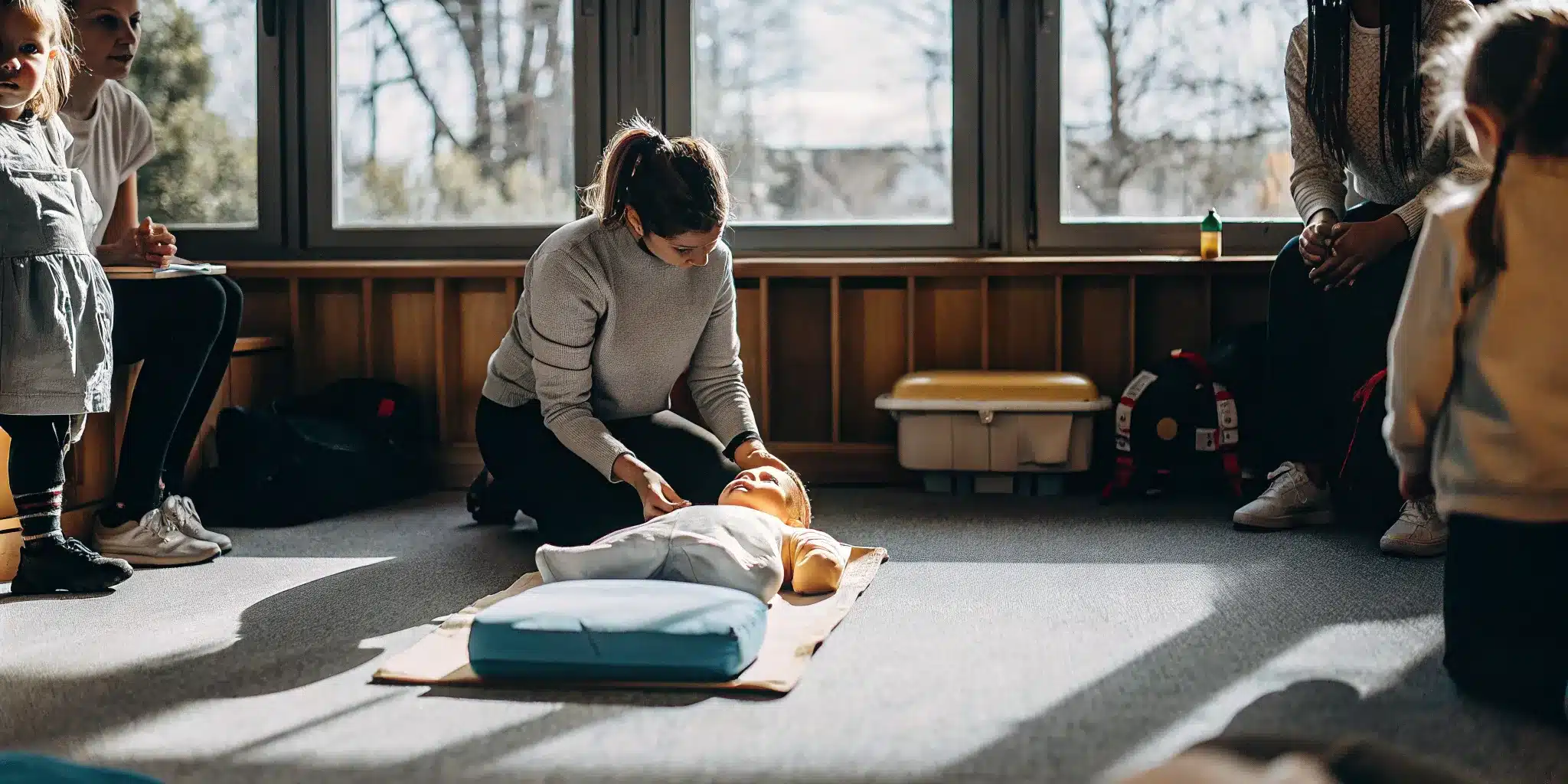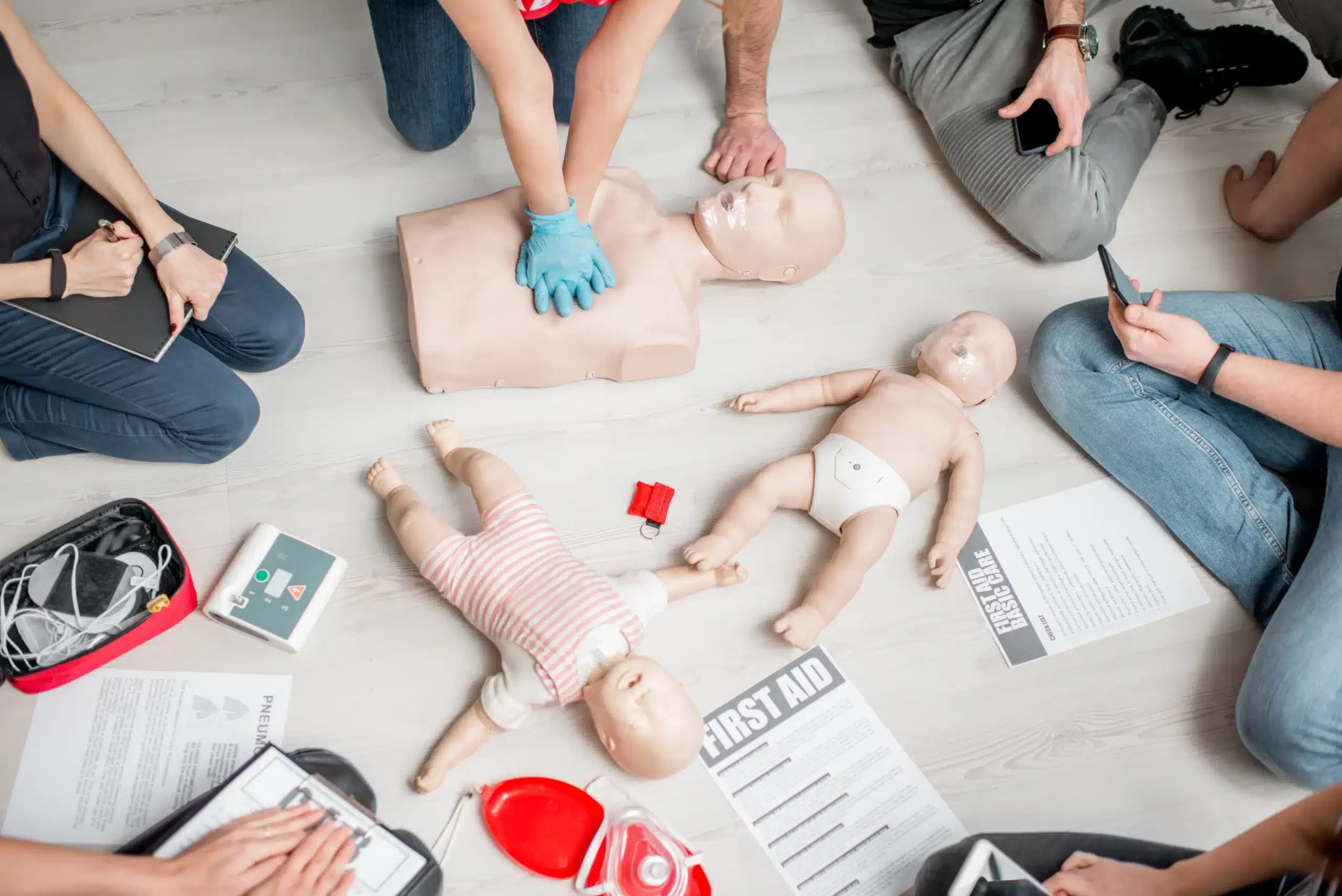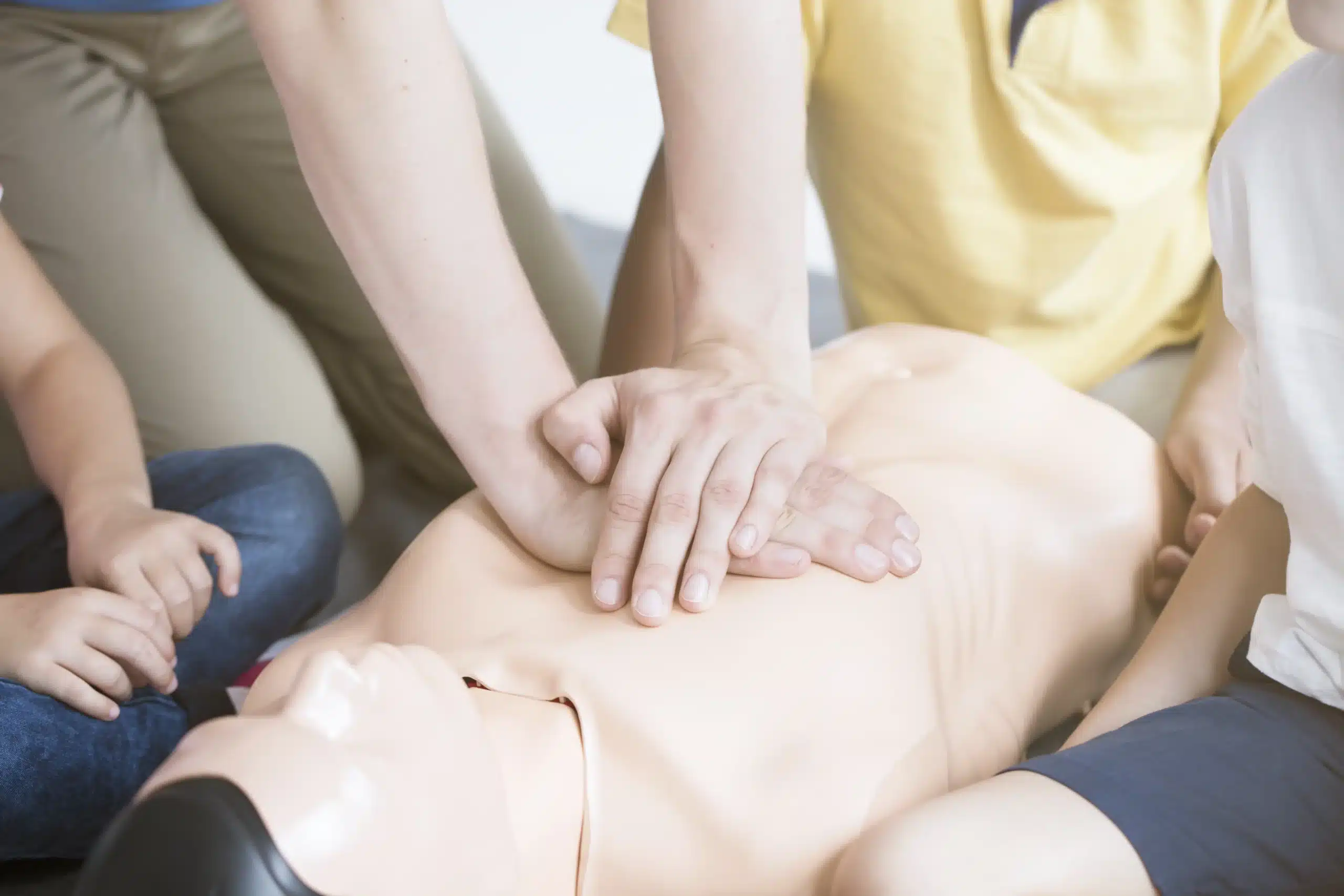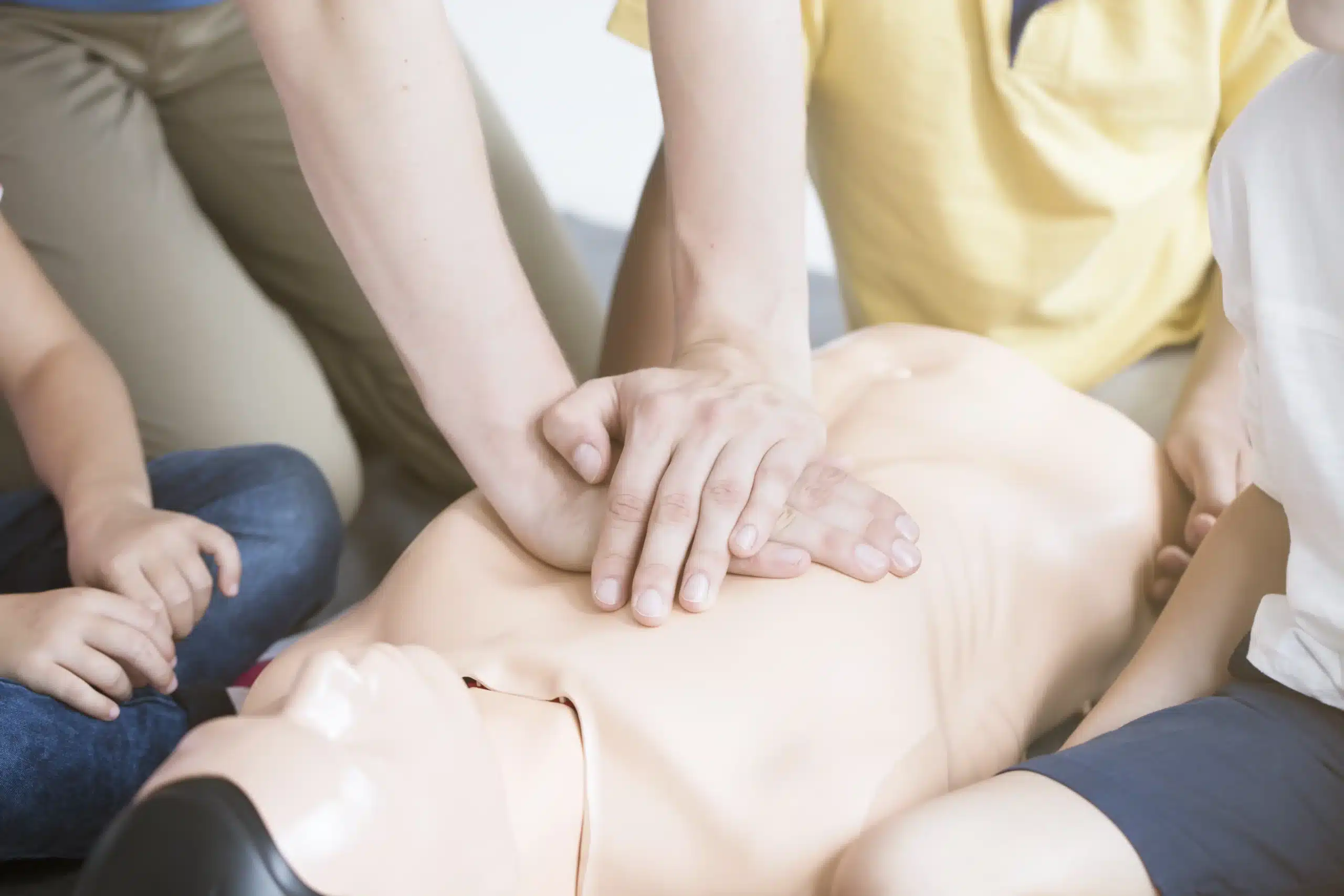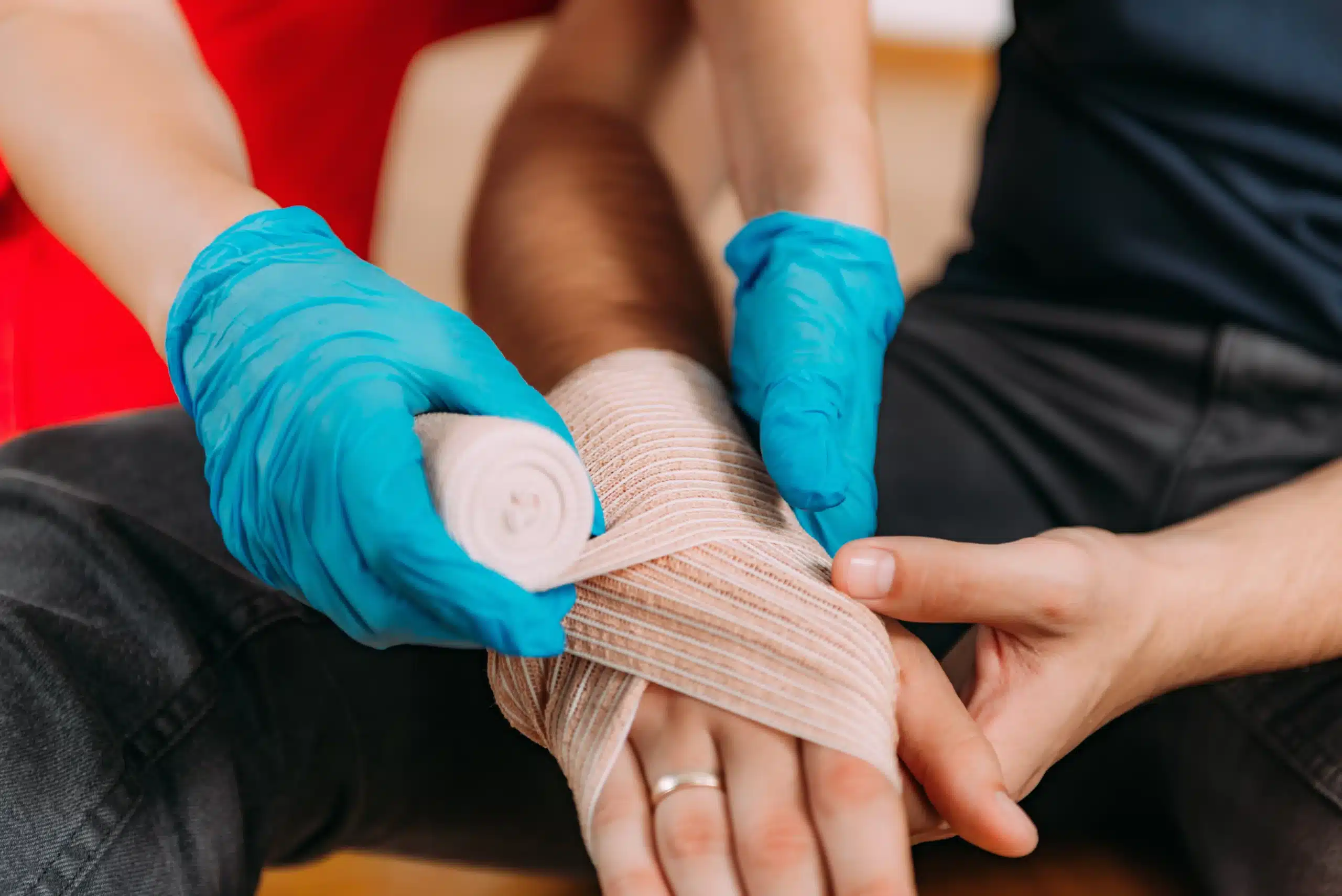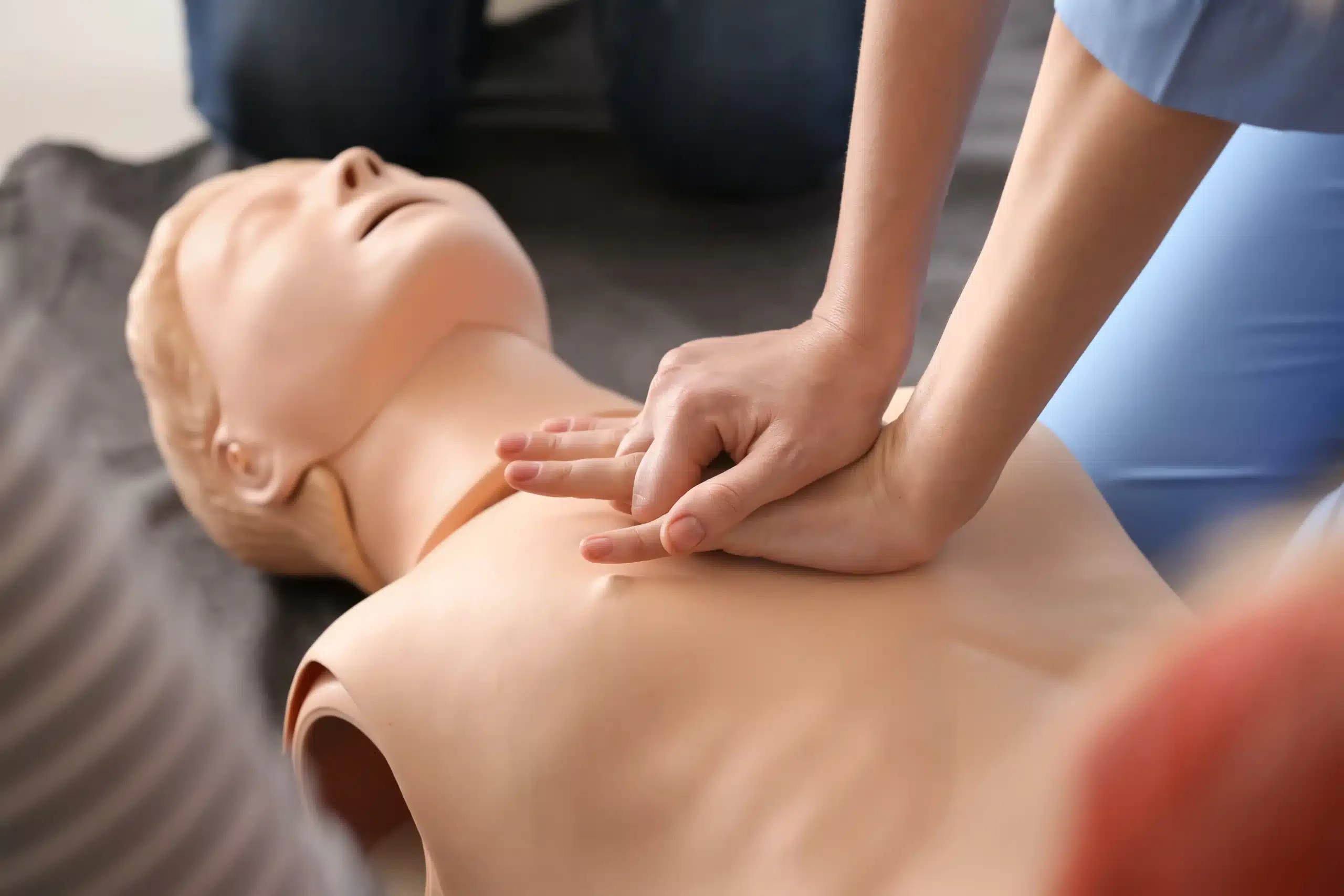Working with children in a healthcare setting means being prepared for anything. From minor injuries to life-threatening emergencies, having the right skills can make all the difference. That’s where Pediatric Advanced Life Support (PALS) training comes in. This specialized program equips healthcare professionals with the knowledge and techniques to effectively manage pediatric emergencies, giving them the confidence to act quickly and decisively when seconds count. If you’re a healthcare provider in Saratoga and want to enhance your skills in pediatric care, understanding the value of PALS is crucial. This article explores the importance of pediatric advanced life support in Saratoga, covering everything from course content and leading providers to certification requirements and the long-term benefits of this specialized training.
Key Takeaways
- PALS certification equips you for pediatric emergencies: It provides the skills to manage critical situations like respiratory distress, shock, and cardiopulmonary arrest in infants and children, focusing on early intervention and effective teamwork.
- Choosing the right PALS course is crucial: Consider factors like class size, instructor experience, and schedule flexibility when selecting a provider. Compare offerings and contact training centers directly for up-to-date pricing and course details.
- Maintaining your PALS certification ensures ongoing preparedness: Renew your certification every two years and explore continuing education opportunities to stay up-to-date with the latest guidelines and best practices in pediatric advanced life support.
What is Pediatric Advanced Life Support (PALS)?
Pediatric Advanced Life Support (PALS) is a specialized training program that gives healthcare providers the skills they need to respond to life-threatening emergencies in infants and children. The course covers critical situations like cardiopulmonary arrest, shock, and respiratory emergencies, with a strong emphasis on early intervention and effective management. PALS teaches participants to quickly and accurately assess young patients, ensuring prompt care for those needing immediate medical attention. This training is essential for improving outcomes, preparing providers to effectively recognize and intervene in emergencies using high-performance team dynamics and high-quality individual skills. Through a combination of classroom learning and hands-on simulations, the PALS certification course covers a systematic approach to pediatric assessment, basic life support, and the application of PALS treatment algorithms. This comprehensive training reinforces these skills and fosters effective teamwork during resuscitation efforts. You can find more information on Pediatric Advanced Life Support through resources like ScienceDirect.
Why PALS Certification is Crucial for Healthcare Professionals
PALS certification is essential for healthcare professionals working with infants and children. It equips them with the skills to respond effectively to life-threatening emergencies. The PALS course from providers like Los Gatos CPR Classes prepares participants to recognize and manage critical situations such as cardiopulmonary arrest, shock, and respiratory emergencies in pediatric patients. This training emphasizes early intervention and the application of evidence-based protocols to improve patient outcomes. Confidently managing these emergencies can significantly impact a child’s survival and long-term health.
The American Red Cross highlights PALS certification as critical for high-quality emergency care, especially for professionals in settings like hospitals and ambulances. Beyond individual skills, PALS fosters high-performance team dynamics, crucial for effective communication and coordination during emergencies. This collaborative approach ensures that the medical team works together seamlessly to provide the best possible care. Inova emphasizes how PALS training improves outcomes for pediatric patients by enhancing a healthcare provider’s ability to recognize and intervene in respiratory emergencies, shock, and cardiopulmonary arrest. This focus on rapid assessment and effective treatment strategies empowers healthcare professionals to make informed decisions under pressure. PALS certification is a vital investment in the safety and well-being of young patients facing critical situations.
Top PALS Course Providers in Saratoga
Finding the right Pediatric Advanced Life Support (PALS) course is crucial for healthcare providers. Here are some reputable training centers in and around Saratoga:
Los Gatos CPR Classes
Los Gatos CPR Classes offers PALS certification designed to equip healthcare professionals with the skills to manage pediatric emergencies. They focus on practical training and adherence to the latest American Heart Association guidelines. Serving Los Gatos, San Jose, and Saratoga, their location is convenient for those in the area. They also offer group discounts and a low price guarantee. For questions, contact them directly.
Saratoga Hospital
Saratoga Hospital provides PALS training for healthcare providers within their network and often opens courses to the wider community. Their courses emphasize a hands-on approach and are taught by experienced medical professionals. Contact the hospital directly to inquire about course availability and registration.
American Heart Association (AHA)
The AHA sets the standards for PALS training. While they don’t directly conduct courses, they authorize training centers to offer their curriculum. Finding an AHA-authorized training center ensures you receive high-quality instruction and a recognized PALS certification.
American Red Cross
The American Red Cross also offers PALS certification. Their blended learning approach combines online modules with in-person skills sessions, offering flexibility for busy schedules.
PALS Course Structure and Duration
Choosing the right PALS course format depends on your learning style and schedule. Let’s break down the different structures and durations you’ll typically find:
Blended Learning
Blended learning combines online, self-paced study with in-person skills practice. This format offers flexibility for busy professionals. You’ll work through the PALS course material online at your own speed, then attend a hands-on session to demonstrate your skills and receive your certification. This approach allows you to focus on specific areas where you need more practice and review.
Traditional Classroom Learning
If you thrive in a traditional classroom setting, instructor-led PALS training might be a good fit. These courses provide a structured learning environment with direct interaction with an instructor and other students. You’ll cover the same comprehensive PALS curriculum, focusing on systematic assessment, rapid recognition, and effective stabilization techniques for pediatric emergencies.
Full PALS Course
The full PALS course provides comprehensive training for healthcare providers new to PALS or those needing recertification. It typically includes the online HeartCode® PALS portion and a selection of advanced eLearning modules. You’ll then complete a hands-on skills session with an AHA PALS Instructor to solidify your learning. For more details on the full course components, check out the American Heart Association’s resources.
PALS Refresher Course
Designed for healthcare professionals who already hold PALS certification, the refresher course focuses on key skills and knowledge. It’s a shorter, more focused course that helps you stay up-to-date on the latest guidelines and maintain your certification. This is a valuable option for nurses, physicians, paramedics, and other healthcare providers needing to renew their credentials. Typically, PALS certification is valid for two years.
PALS Certification: Prerequisites and Qualifications
Healthcare Professional Status
The PALS Provider Course from the American Heart Association is designed for healthcare providers involved in the management of critically ill infants and children. This includes professionals like doctors, nurses, paramedics, respiratory therapists, and others who regularly encounter pediatric emergencies. The course equips these individuals with the advanced skills needed to effectively manage respiratory distress, shock, and cardiopulmonary arrest in young patients. A core focus of PALS training is fostering high-performance team dynamics and honing individual skills to achieve the best possible patient outcomes.
Current BLS Certification
While a current Basic Life Support (BLS) certification isn’t strictly required to take a PALS course, proficiency in child and infant BLS for healthcare providers is essential. The PALS Provider Course reviews and evaluates these BLS skills, ensuring participants possess a strong foundation before moving on to the more advanced concepts. This refresher ensures everyone is up-to-speed on basic life support techniques before tackling complex pediatric care scenarios.
Prior Knowledge
Although not mandatory, prior knowledge and experience in pediatric care are beneficial for PALS participants. The course content builds upon existing skills and knowledge, allowing healthcare professionals to expand their expertise. The PALS curriculum uses a personalized learning approach, adapting to each student’s performance and confidence level. This tailored approach helps participants engage effectively with the material and strengthen their competencies in pediatric emergency care.
Cost of PALS Courses in Saratoga
Understanding the cost of PALS certification is an important part of your training journey. Let’s break down the typical expenses associated with PALS courses in Saratoga.
Full Course Pricing
The full Pediatric Advanced Life Support (PALS) course provides comprehensive training and a two-year certification. Several providers offer PALS training in Saratoga, including Mohawk Ambulance Service Training Center. Contacting the training center directly is the best way to get the most up-to-date pricing information. This also allows you to compare options and understand any potential additional costs.
Refresher Course Costs
If you’re already PALS certified and approaching your renewal date, a refresher course is the most efficient way to maintain your skills. This shorter, targeted course helps you stay current with the latest guidelines. As with the full course, contacting the training center directly, such as Mohawk Ambulance Service, will give you the most accurate pricing.
Materials and Textbooks
The PALS Provider Manual is a key resource for both the full and refresher courses. This manual provides valuable information and reinforces the concepts covered during training. While typically priced around $39.00, it’s always best to check with your chosen provider to confirm the required materials and their cost. You can find information on required materials at Mohawk Ambulance Service.
Discounts and Promotions
Looking to make your PALS training more affordable? It’s worth checking for potential discounts. Some providers offer promotions, especially for groups. Check their websites or contact them directly to explore available discounts. For example, Express Training Solutions occasionally offers discounts on their courses. This can be particularly helpful if you’re coordinating training for multiple people.
What to Expect in a PALS Course
PALS courses blend online learning with hands-on skill sessions. This flexible approach lets you learn the material at your own pace, then put your knowledge into practice. Here’s what you can expect:
Online Learning
You’ll start with online modules covering essential concepts and information. This self-paced portion allows you to get familiar with pediatric assessment, basic life support, and PALS treatment algorithms before practicing your skills in person. The American Heart Association offers a variety of PALS course options, including this blended learning format.
In-Person Skills Sessions
After completing the online modules, you’ll attend an in-person skills session led by experienced instructors. These sessions typically last about five hours, including breaks. You’ll focus on practicing essential skills, like airway management, intravenous access, and medication administration.
Scenario-Based Training
PALS courses use realistic simulations of pediatric emergencies to reinforce key concepts. These scenarios provide a safe environment to apply your knowledge and skills under pressure. You’ll learn how to systematically assess pediatric patients, make quick decisions in critical situations, and work effectively as part of a team. Inova’s PALS course information details how scenario-based training helps develop effective resuscitation techniques.
Assessment and Certification
After finishing the online and in-person components, you’ll complete an assessment to evaluate your knowledge and skills. If you’re successful, you’ll receive a PALS Provider Course Completion eCard, valid for two years. The American Heart Association provides details on PALS certification.
Maintain Your PALS Certification
Keeping your PALS skills sharp is essential for providing the best possible care to young patients. This section covers how to stay current with your certification.
Renewal Requirements
PALS certification is valid for two years. To maintain your certification, you must complete a PALS renewal course before it expires. This ensures you stay up-to-date with the latest guidelines and techniques in pediatric advanced life support.
Continuing Education
Continuing education is key to maintaining proficiency in PALS. The PALS course from the American Red Cross, for example, offers continuing education credits. These credits demonstrate your commitment to ongoing learning and professional development in pediatric emergency care. Many PALS renewal courses incorporate the latest evidence-based practices, giving you the confidence to handle critical situations. The American Heart Association offers various PALS course options, including blended learning formats that combine online modules with in-person skills sessions. This flexibility allows you to fit the training into your schedule.
Choose the Right PALS Provider in Saratoga
Choosing the right Pediatric Advanced Life Support (PALS) provider is crucial for receiving high-quality training. Several factors can influence your decision, and understanding these can help you find the best fit for your learning style and schedule.
Factors to Consider
Think about what’s important to you in a learning environment. Do you value small classes for personalized instruction? Is a convenient schedule a top priority? Consider these factors:
- Class Size: Smaller classes allow for more interaction with the instructor and individualized feedback. Larger classes can be beneficial for those who learn well by observing others.
- Instructor Experience: Look for instructors with extensive pediatric emergency care experience. Their real-world insights can significantly enrich the learning process. Reading reviews or testimonials can offer valuable perspectives on an instructor’s teaching style and expertise.
- Course Schedule and Location: Choose a schedule and location that works for you and minimizes travel. Consider whether weekday or weekend classes are best. Los Gatos CPR Classes offers courses daily in over 60 cities, providing flexibility.
- Cost: PALS courses vary in price. Compare costs, but remember that the lowest price isn’t always the best value. Consider the overall quality of the training and the provider’s reputation. Los Gatos CPR Classes offers a low price guarantee.
Compare Course Offerings
After identifying potential providers, compare their courses. While all PALS courses follow the American Heart Association guidelines, the format and delivery can differ.
- Blended Learning: This format combines online learning with in-person skills sessions, offering flexibility. You complete the cognitive portion online at your own pace and then attend a hands-on session.
- Traditional Classroom Learning: This involves in-person instruction for the entire course, allowing continuous interaction with the instructor and other students.
- Course Materials: Ask about the materials included in the course fee. Some providers include textbooks and resources, while others require separate purchases.
- Refresher Courses: If you’re already PALS certified and need to renew, look for providers offering refresher courses. These are typically shorter and focus on updating your knowledge and skills. Los Gatos CPR Classes offers the American Heart Association RQI program.
By carefully considering these factors and comparing offerings, you can choose a PALS provider in Saratoga that meets your needs. Contact Los Gatos CPR Classes if you have any questions.
The Value of PALS Training for Pediatric Care
PALS training is essential for any healthcare provider working with children. It equips them with the skills to confidently manage pediatric emergencies. A PALS course covers a wide range of critical situations, from cardiopulmonary arrest and shock to respiratory distress in infants and children. The training stresses early intervention and effective teamwork to achieve the best possible outcomes. This focus on teamwork is crucial in high-stress environments, enabling coordinated responses and improved communication among medical professionals.
The American Red Cross highlights how PALS training combines crucial psychomotor skills with critical thinking and problem-solving to deliver high-quality care (Pediatric Advanced Life Support – Blended). This well-rounded approach ensures healthcare providers can perform life-saving procedures and make sound, informed decisions under pressure. Inova underscores the course’s focus on improving outcomes for pediatric patients. They emphasize how PALS prepares providers to effectively recognize and intervene in respiratory emergencies, shock, and cardiopulmonary arrest (2024 Inova Pediatric Advanced Life Support (PALS) – Provider Live Course). This proactive approach can significantly reduce the severity of complications and improve a child’s chances of a full recovery.
PALS certification is invaluable for anyone working in emergency medicine or pediatric critical care. It not only equips individuals with life-saving skills but also contributes to a culture of preparedness and excellence in pediatric care. Having a PALS-certified team can dramatically impact a child’s chances of survival and long-term well-being. For more information on PALS courses and certification, visit our PALS page.
Related Articles
- AHA PALS Classes in Los Gatos, CA – Los Gatos CPR Classes
- CPR Certification in Los Gatos: Your Guide – Los Gatos CPR Classes
- NRP Certification Classes in Los Gatos, CA – Los Gatos CPR Classes
- CPR, BLS, ACLS, PALS, and First-aid Courses in Los Gatos, CA
- Why CPR is Important in Healthcare – Los Gatos CPR Classes
Frequently Asked Questions
What is the difference between PALS and BLS?
BLS (Basic Life Support) teaches fundamental life-saving skills, including CPR and first aid. PALS (Pediatric Advanced Life Support) builds upon this foundation, focusing on the specialized skills needed to manage life-threatening emergencies specifically in infants and children. It delves into more complex scenarios and advanced interventions.
How long does PALS certification last, and how do I renew it?
PALS certification is typically valid for two years. To renew, you’ll need to complete a PALS refresher course before your current certification expires. This shorter course covers essential updates and reinforces key skills.
What if I don’t work in a hospital? Do I still need PALS certification?
While PALS is crucial for hospital staff, it’s also highly beneficial for anyone regularly caring for infants and children, including paramedics, school nurses, and those working in childcare settings. The ability to recognize and respond to pediatric emergencies is a valuable skill in any environment.
What can I expect during a PALS course?
Most PALS courses use a blended learning approach, combining online modules with in-person skills sessions. You’ll study key concepts online at your own pace, then practice those skills in a hands-on setting with experienced instructors. The course includes realistic simulations to prepare you for real-world emergencies.
How do I choose the right PALS course provider?
Consider factors like class size, instructor experience, schedule, location, and cost when selecting a PALS provider. Look for an AHA-authorized training center with experienced instructors and a format that fits your learning style and schedule. Reading reviews and comparing course offerings can help you make an informed decision.
